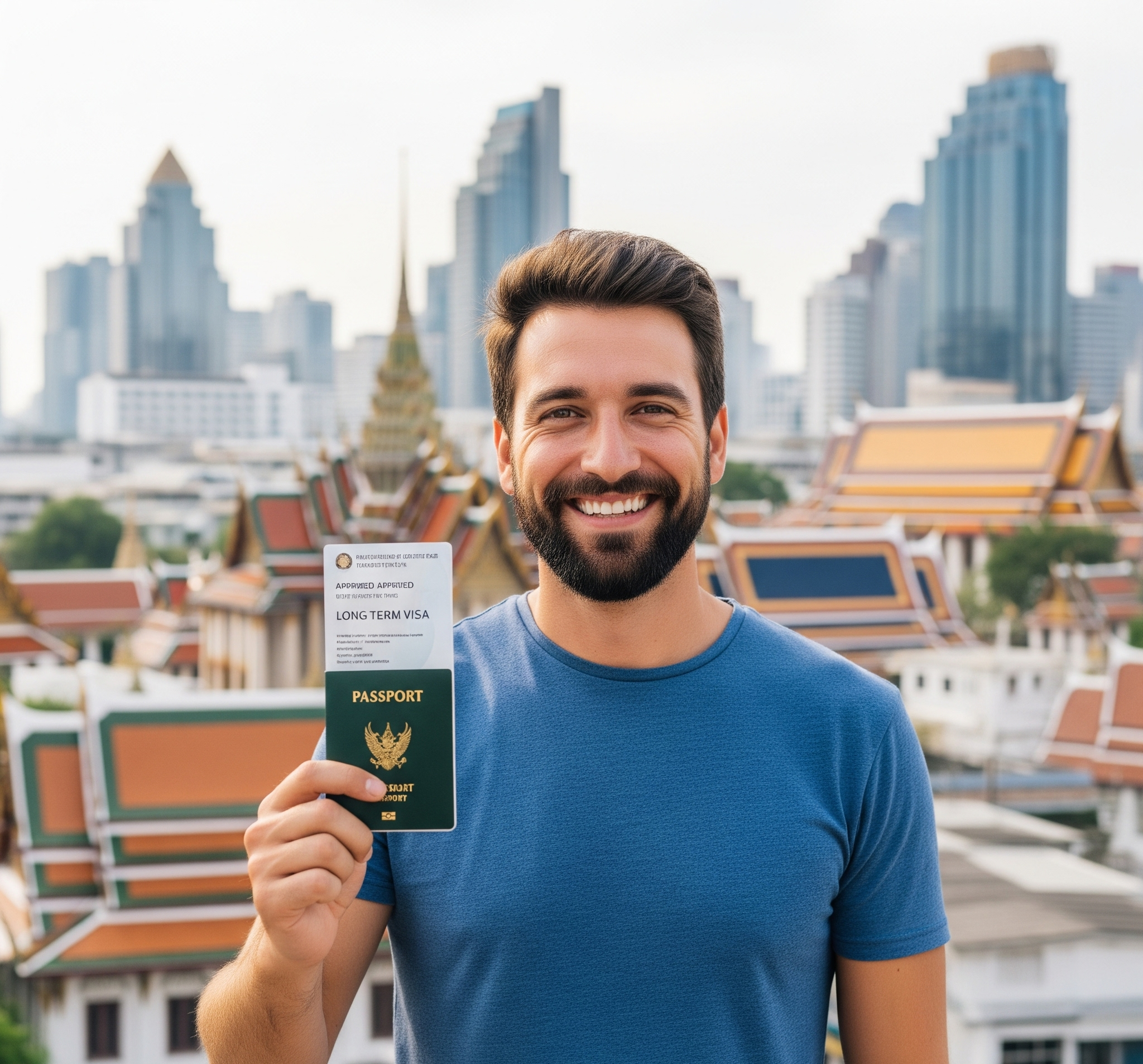From Tourist Visa to Long-Term Stay: Conversion Options for Expats in 2025
So, you've fallen in love with Bangkok's vibrant energy, delicious street food, and friendly people. Your tourist visa is nearing its end, and the thought of leaving is unbearable. Many tourists find themselves in this situation, wondering how to transition from a short-term visit to a longer stay. Converting your tourist visa into a long-term visa in Thailand can feel daunting, but with the right information and a systematic approach, it's entirely achievable.
Understanding Your Options: From Tourist Visa to Long-Term Stay
Thailand offers various long-term visa options for expats, each with specific eligibility requirements. The most common pathways for converting a tourist visa involve obtaining a non-immigrant visa. These visas cater to different purposes, such as work, retirement, education, or marriage. Choosing the right visa depends heavily on your individual circumstances.
The most popular choices are usually the Non-Immigrant B visa (for business), the Non-Immigrant O visa (for retirement), and the Non-Immigrant ED visa (for education). Each has its own application process, fees, and documentation needs. Understanding these differences is crucial for a smooth transition.
Requirements and Documentation: What You Need to Prepare
The specific documents required will vary depending on the type of visa you’re applying for. However, some common documents include:
- A valid passport with at least six months of validity remaining.
- Recent passport-sized photographs meeting specific Thai immigration requirements.
- Proof of sufficient funds to support your stay in Thailand (bank statements, etc.). The required amount varies depending on the visa type and your lifestyle.
- Proof of accommodation (lease agreement, hotel reservation, etc.).
For Non-Immigrant B visas, you will additionally need documentation related to your business activities in Thailand, such as a business registration certificate or a letter of employment from a Thai company. For Non-Immigrant O visas (retirement), you'll need proof of retirement income, and for Non-Immigrant ED visas, you'll need proof of enrollment in a Thai educational institution.
Step-by-Step Application Process: A Practical Guide
The application process itself can be intricate. Here's a general overview. Remember, this is a simplified version, and you should always check the most up-to-date information with the Thai immigration authorities.
- Gather all required documents: Ensure everything is meticulously organized and translated into Thai if necessary. Many translation services are available in Bangkok; you can find them near immigration offices.
- Complete the visa application form: Ensure all information is accurate and legible. Careless errors can lead to delays or rejection.
- Submit your application: This is typically done in person at the nearest Thai immigration office. You’ll need to present all your documents, pay the applicable fees (which vary depending on the visa type, typically ranging from 1,900 - 5,000 THB), and provide fingerprints.
- Wait for processing: Processing times can vary, usually ranging from a few weeks to several months. It’s best to apply well in advance of your tourist visa expiry.
- Collect your visa: Once approved, you'll receive notification. Return to the immigration office to collect your new visa.
The immigration office in Bangkok is located at Chaeng Wattana Road. Be prepared for potential queues; arriving early is highly recommended.
Common Mistakes to Avoid: Learning from Others' Experiences
Many tourists make avoidable mistakes during the visa conversion process. These often include:
- Incomplete or inaccurate applications: Double-check every detail before submission. One small mistake can delay or invalidate your application.
- Insufficient funds documentation: Ensure your bank statements clearly demonstrate sufficient funds for the duration of your visa.
- Incorrect visa type selection: Choose the visa that best aligns with your circumstances to avoid rejection. If you're unsure, seeking professional guidance is a prudent decision.
- Missing deadlines: Stay informed about deadlines and act proactively to avoid delays.
Timeline and Processing: What to Expect
The entire process, from gathering documents to receiving your visa, can take anywhere from a few weeks to several months. Factors influencing processing time include the completeness of your application, the type of visa you are applying for, and the current workload of the immigration office. Be patient and prepared for potential delays. Regularly check the status of your application to remain informed.
Expert Tips and Recommendations: Navigating the System Successfully
Converting your tourist visa to a long-term visa requires careful planning and attention to detail. To enhance your chances of success:
- Start early: Begin the process well before your tourist visa expires to allow ample time for any unforeseen delays.
- Organize your documents meticulously: Keep everything neat, accurate, and readily accessible.
- Understand the specific requirements of your chosen visa type: Don't assume; check the official government website for the most up-to-date information.
- Consider professional assistance: For complex cases or those who want peace of mind, engaging a service like My Thai Buddy can streamline the process. They can assist with the intricate details, documentation preparation, and navigating any potential hurdles.
While the process can seem complicated, with thorough preparation and the right approach, you can successfully transition from tourist to long-term resident in Thailand. Remember that the information provided here is for guidance only and should not be considered as legal advice. Always consult with the relevant Thai immigration authorities for the most accurate and up-to-date information.
Challenge: Navigating the complex visa application process independently can be overwhelming and time-consuming.
Solution: For a more seamless experience, consider exploring professional visa assistance services. These services can help you gather the necessary documents, complete the applications accurately, and follow up on your application's status.
Planning a long-term stay in Thailand can involve many moving parts. If you find yourself needing assistance with research and comprehensive planning beyond visa applications, you might find it beneficial to explore the options available for personalized support. This can ensure that all the necessary aspects of your move are handled efficiently.
Need assistance with your visa application or long-term stay planning? Schedule a consultation to discuss your specific needs and explore how we can help you navigate the complexities of relocating to Thailand.


